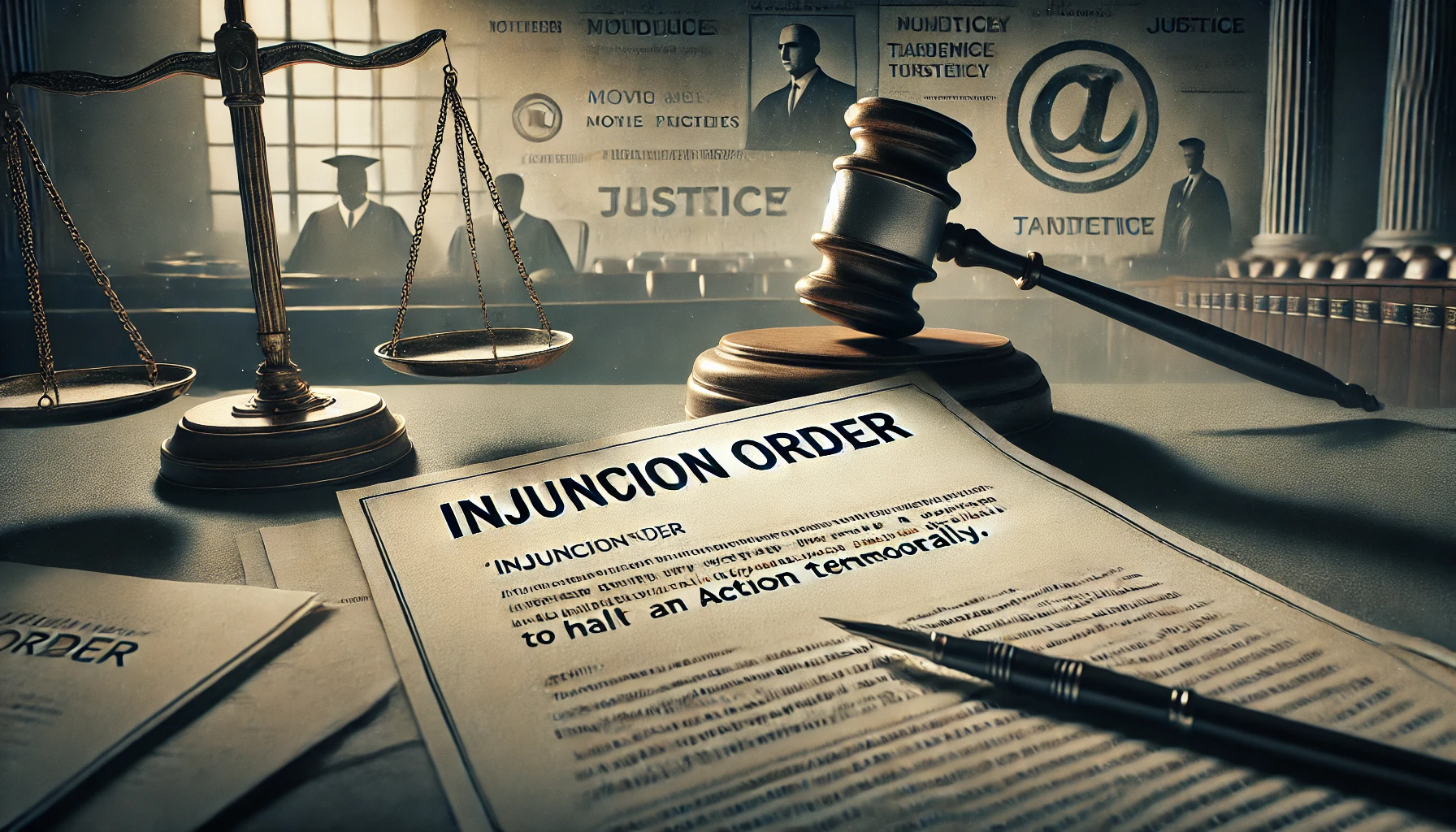Why in News?
A division bench of Justice Pushpendra Singh Bhati and Justice Munnuri Laxman of the Rajasthan High Court granted an ad-interim stay on the impugned order dated 08-10-2024, issued by the Commercial Court, Jodhpur, which had earlier placed an ad-interim injunction against the release of the movie “Jigra” citing trademark violation. The Court allowed the release of the movie while safeguarding the respondent’s right to claim damages if a trademark violation is later proven.
What is Ad-Interim Injunction?
Purpose:
The primary aim of an ad-interim injunction under ORDER XXXIX CPC is to maintain the status quo until the court thoroughly examines the merits of the case. It ensures that no party suffers irreparable damage during ongoing litigation.
Applicability:
- An ad-interim injunction is typically issued when there is a prima facie case indicating potential harm to the plaintiff.
- It is a temporary measure applied while the main dispute is under consideration.
- Such injunctions can be modified or revoked as the case progresses, depending on new facts or legal arguments.
Notice by the Court:
- Generally, a notice is issued to the opposite party before granting an ad-interim injunction.
- In urgent cases, ex-parte injunctions may be granted temporarily, even without prior notice, under Order XXXIX Rule 3 of the CPC.
Time-Limit:
- Ad-interim injunctions are temporary and usually apply for a specified period.
- The court may extend or modify these injunctions as necessary based on the evolving circumstances of the case.
Violation:
- As per Rule 2A of the ORDER XXXIX of CPC, if a party disobeys the terms of an ad-interim injunction, the court may:
- Attach the property of the guilty party.
- Detain the person in civil prison for up to three months, unless directed otherwise by the court.
Essentials to Avail Ad-Interim Injunction:
- The plaintiff must demonstrate a prima facie case in their favor.
- The plaintiff must show potential for irreparable injury if the injunction is not granted.
- The court assesses the balance of convenience to determine if the injunction is justified.
- The plaintiff must prove that there is no other adequate remedy available, such as monetary compensation.

